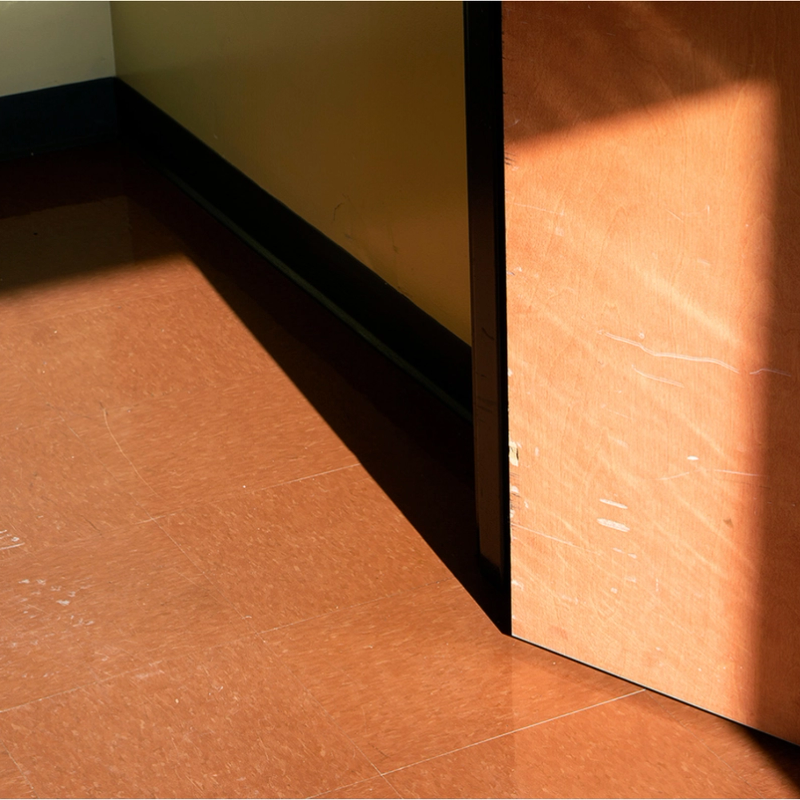Stringed
by Amanda GainesI rediscover bluegrass seven beers deep into a Friday night. It’s snowed for three days in Oklahoma. The roads are swallowed by soft, rounded hills. They glisten under amber streetlamps outside my bedroom window. This kind of weather, a fluke. This kind of weather sets a new record. This kind of weather: quiet, open. Pale legs spread before a concert hall.
You’ve seen four doctors in five weeks. You’ve been tested for everything: UTIs, yeast infections, abnormal flora, STIs, cervical cancer. They don’t know what’s making your stomach swell as if full of blooming daturas. They prescribe you antibiotics. They send you home with muscle relaxers for the taut strings that are your pelvic floor. When they ask you to describe the pain on a scale, you want to tell them C, it’s a C note, being thrummed over and over again between your legs. You say six and feel the pills make their way down your throat.
I used to really love it, wielding a violin. I played from the ages of four until eleven, made second chair in the youth symphony orchestra. I memorized the way the bow cut through sound like a knife dropping through set mousse. At the sound of vibrato, my eyes fluttered. I thought this thing was made for me; how else could I explain the way my jaw slid like a latch into place against the chinrest, the way that hollow, wooden body aligned with my shoulder? The first time I struck a chord, I felt the room expand and contract like an organ I wanted to slip my finger into.
You’d tried everything. Steaming Epsom salt baths. Deep tissue uterine massage. Tylenol every three hours. Not drinking. No tomatoes, lemons, processed foods. Heat pads held against your vulva. Pain management, a predictable daily hook. You’d tried everything but the remedy you knew would give you relief, if only for a little while.
I was raised in West Virginia. Raised on bluegrass. Harmonicas hummed the tune of warm southeastern winds. Plucked mandolins, creek babble. The upright bass croaked a hymn of hidden bullfrogs. Sometimes, if I closed my eyes, the song of myself made its way through the scroll to my wrist like an anesthetic. Sometimes, the strings bent under the pressure of my bow and the mistake made a sound like screaming.
You mixed two parts vodka and one part soda. It was missing something, but you swallowed it anyway. Globe lights lit your bedroom like the half-opened eyes of an audience. You turned up the speakers and hung your clothes on the hooks of a mandolin. You thought of sugar and yeast and process, of how a sound, like a drink, like a sensation, can be both sharp and sweet. For the first time in weeks, you felt your limbs elongate and ease. For the first time in weeks, you felt a throbbing between your hips and did not name it pain.
I always regretted quitting. For years after, I’d return to the closet where I kept my violin and try to strum out something that sounded natural, hoping to trick myself into believing I could begin again. The last time I did this, I wrung the tuning pegs so tightly that the once-slack string snapped. It hung over the bridge, a limp leg strapped into a silver gynecologist’s stirrup. Now, I arch my back in front of a mirror and imagine another woman running her hands over the neck of a bass as music fills the room. I spread my knees and the sound of rapid-fire pizzicato warms my thighs like whiskey. I imagine two women writhing under one another and sigh; each discovering a space another needs touched.
You polish off a bottle. You end up being fine. The urologist tells you that he sees hundreds of girls like you every month. They can’t explain why it happens, these symptoms, but are willing to bet it’s not permanent. You want to hear this as a write-off, but don’t. You want to name this inattention but all you hear are cicadas on a snare drum.
I cry in relief when I only visit the bathroom eight times in twelve hours. I listen to my body for change. I watch snowflakes corkscrew from the sky, guitars fading, and consider myself lucky to have hands that can usher wild sounds out of myself, hands that can put me to sleep. I count the days that follow without suffering like beats on a measure.
